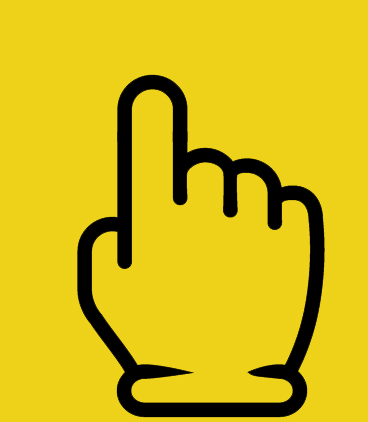
Unconventional and Uncommon Interview Methods
Unconventional job interview methods and uncommon job interview methods are revolutionizing the hiring process by providing unique ways to assess candidates' qualifications, skills, and fit within an organization. The traditional format of interviews, consisting of standard questions and answers, is being challenged as innovative approaches gain traction.
This article delves into the realm of unconventional interview techniques, exploring the creative exercises and role-playing scenarios that organizations have embraced to gain deeper insights into candidates. By breaking away from the confines of a conventional interview, these methods offer a glimpse into a candidate's true potential.
Unconventional job interview methods and uncommon job interview methods offer numerous benefits in the hiring process. They provide opportunities for employers to assess candidates in dynamic and practical ways, going beyond mere verbal responses. Creative exercises, such as problem-solving challenges or group activities, test a candidate's ability to think on their feet, collaborate with others, and showcase their creativity.
Behavioral Role-Playing
Behavioral role-playing is an effective interview method that allows hiring managers to assess a candidate's abilities in real-world scenarios. By creating a simulated workplace environment, this approach goes beyond theoretical questions and provides a practical demonstration of a candidate's skills and capabilities.
During a behavioral role-playing interview, candidates are asked to assume the role of an employee and are presented with a specific scenario relevant to the position they are applying for. This could involve customer interactions, conflict resolution, team collaboration, or decision-making challenges. For instance, a candidate applying for a sales role may be asked to role-play a sales call with a difficult customer, while a candidate vying for a managerial position may be tasked with handling a team conflict.
One of the primary purposes of behavioral role-playing is to evaluate a candidate's problem-solving skills. By observing how candidates approach and resolve challenges in the simulated scenario, hiring managers can assess their ability to think critically, generate effective solutions, and adapt to unexpected situations. This method provides valuable insights into a candidate's problem-solving approach and creativity, helping employers gauge their potential to tackle real-world issues.
Communication abilities are also critical in almost every role within an organization. Behavioral role-playing interviews allow hiring managers to assess a candidate's verbal and non-verbal communication skills. By observing their interactions and responses during the role-playing exercise, employers can evaluate a candidate's ability to listen actively, articulate their thoughts clearly, and convey information persuasively. Effective communication is vital for collaborating with colleag
ues, engaging with customers, and conveying ideas within the workplace.
Furthermore, behavioral interviews provide an opportunity to evaluate how candidates handle pressure. In many job roles, individuals are often required to make decisions and perform tasks under stressful conditions. By immersing candidates in realistic scenarios, employers can assess their ability to manage stress, remain composed, and make sound decisions under pressure. This provides valuable insights into a candidate's emotional intelligence, resilience, and their potential to thrive in demanding work environments.
BONUS TIPS TO ACE JOB INTERVIEWS
Want to conquer job interviews like a pro? Look no further than Interview Experts! Our interview preparation service is here to transform your interview skills and help you land the job of your dreams. Gain the competitive edge you need with our comprehensive Interview Bootcamp covering everything from resume optimization to mastering tough interview questions. Get ready to showcase your talents and unlock a world of career opportunities. Join Interview Experts today and take your interview skills to new heights.
Case Studies and Problem-Solving
Case studies and problem-solving exercises are becoming popular interview techniques as they provide a practical assessment of a candidate's analytical and problem-solving skills. These exercises involve presenting candidates with real or hypothetical business scenarios and challenging them to analyze the situation, identify key issues, and propose effective solutions.
By incorporating case studies into the interview process, employers can evaluate a candidate's ability to think critically and apply their knowledge and expertise to complex problems. These exercises often require candidates to analyze data, consider different perspectives, and make informed decisions. This allows employers to assess their analytical thinking, strategic reasoning, and ability to handle complex and ambiguous situations.
One of the key benefits of case studies and problem-solving exercises is that they provide a glimpse into a candidate's decision-making capabilities. Employers can observe how candidates approach the problem, consider different options, weigh pros and cons, and ultimately make a recommendation or decision. This helps evaluate their ability to make logical and sound judgments, considering both short-term and long-term implications.
Moreover, case studies and problem-solving exercises offer insight into a candidate's creativity and innovative thinking. Candidates are often required to come up with innovative solutions or approaches to address the challenges presented in the case study. This allows employers to assess their ability to think outside the box, generate novel ideas, and propose innovative strategies. Creative problem-solving skills are highly valued in many industries, as they contribute to organizational growth, competitiveness, and adaptability.
These exercises also provide a platform for candidates to showcase their communication skills. Throughout the case study or problem-solving process, candidates are expected to articulate their thoughts, explain their reasoning, and present their proposed solutions. Effective communication is crucial, as candidates must convey their ideas clearly and persuasively to demonstrate their understanding of the problem and their proposed course of action.
However, it is important to note that case studies and problem-solving exercises have some limitations. Candidates may not have access to all the necessary information or resources they would have in a real-world situation. The time constraints of an interview setting may also restrict the depth of analysis and solution development. Nonetheless, these exercises still provide valuable insights into a candidate's problem-solving abilities and their potential to handle similar challenges in the workplace.
Cultural Fit Interviews
Uncommon job interview types and uncommon interview techniques have gained prominence as organizations recognize the significance of aligning an individual's values, personality, and work style with their company culture. These interviews transcend the evaluation of technical qualifications and skills, instead focusing on how well a candidate would fit into the existing team and contribute to the organization's overall mission and vision.
Uncommon job interview types often take place in informal settings to create a more relaxed and authentic environment. This allows candidates to showcase their true selves and engage with team members on a more personal level. Informal conversations over a casual lunch or coffee break provide valuable opportunities to assess a candidate's communication style, interpersonal skills, and ability to build rapport.
During uncommon job interviews, team members and hiring managers may pose open-ended questions that delve into a candidate's values, work preferences, and motivations. They may explore topics such as the candidate's preferred work environment, their approach to teamwork, and their alignment with the organization's mission and core values. By delving into these aspects, employers can gauge the candidate's potential to thrive within the company's unique culture.
Engaging candidates in team activities or outings can also be part of uncommon job interviews. These activities offer a chance for candidates to interact with potential colleagues, observe team dynamics, and experience the organization's culture firsthand. It enables employers to evaluate how candidates collaborate, communicate, and adapt within a team setting.
Assessing cultural fit during interviews holds crucial significance for several reasons. It ensures that new hires align with the organization's values, fostering a cohesive and harmonious work environment. When employees share common values and work towards a shared vision, it enhances collaboration, communication, and teamwork, ultimately leading to increased productivity and job satisfaction.
Moreover, uncommon job interview types aid in reducing turnover rates. When employees feel a strong connection to their workplace and colleagues, they are more likely to remain engaged and committed to the organization in the long run. By selectively hiring individuals who align with the company's culture, employers can cultivate a sense of belonging and foster loyalty among their workforce.
Conclusion On List Of Unconventional & Uncommon interview methods
Unconventional and uncommon interview methods are gaining traction in the modern hiring landscape. While traditional interviews serve their purpose, these alternative approaches offer unique advantages by providing a more comprehensive assessment of a candidate's capabilities, problem-solving skills, and cultural fit. These methods allow employers to gauge a candidate's potential beyond their resume or standard interview responses.
However, it is essential to recognize that these Unusual job interview technique may not be suitable for every organization or position. Each approach has its strengths and weaknesses, and careful consideration should be given to ensure the chosen method aligns with the organization's goals and values.
Hope you liked this article on - List Of Unconventional & Uncommon interview methods
If you have any queries or questions, you can reach out at info@interview-expert.com.
For more guidance on interview preparation, contact Interview Expert.

